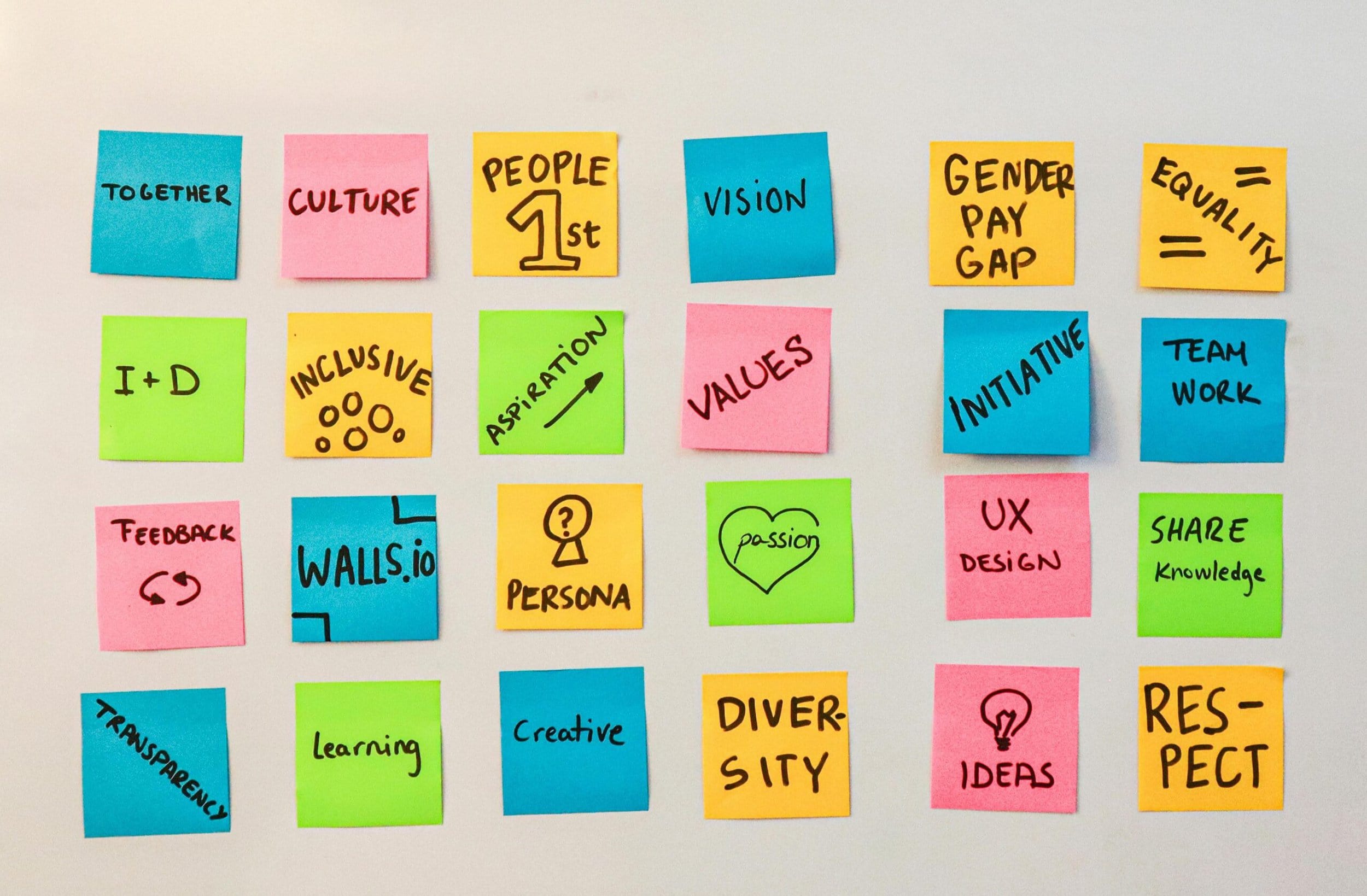
International Women’s Day (IWD) has been celebrated globally for well over a century, its significance and impact growing each year. It’s a moment for us to recognise the social, economic, cultural and political achievements of women, the power of which cannot be underestimated. Narratives of joy and hope inspire us to persevere in building a diverse, equitable and inclusive world. They form the ground upon which further action can be built.
At the same time, IWD stands as a stark reminder of the work still to be done. An invitation to do better. Because, despite significant progress in many areas, women still encounter barriers to accessing education, healthcare, economic opportunities and political representation. Moreover, issues such as gender-based violence, discrimination and systemic biases continue to impact women’s lives in profound ways.
This year’s theme, #InspireInclusion, highlights the crucial role inclusion plays in achieving gender equality. It encourages us to recognise the unique perspectives and contributions of women from all walks of life. The theme also serves as a powerful reminder to recognise and advocate for the rights of all individuals, regardless of gender identity, age, race, ethnicity, religion, disability or any other characteristic. This is integral to ensuring equal opportunities and rights for everyone, everywhere.
What does it mean to be truly inclusive?
Before we can work to inspire inclusion, we need a solid understanding of what this really means. Inclusion is many things, but at its core is the feeling of being welcomed, respected, represented, valued and heard.
True inclusion goes beyond diverse representation; it involves creating environments where individuals feel comfortable being their authentic selves. If, for example, employees within a workforce feel their needs are being overlooked or that they must conform to a specific norm or standard to belong, the organisation has failed at being inclusive, regardless of its efforts to increase diversity.
All of this requires addressing both structural and cultural barriers – from advocating for policy reforms and ensuring their successful implementation, to challenging societal norms and stereotypes, establishing support networks and fostering open dialogue.
By engaging with and embracing diverse perspectives and experiences, we can collectively create environments where everyone feels empowered. This is essential for ensuring people everywhere, including women, can live with dignity, equality and joy.
What hinders our progress towards a more inclusive working world?
True inclusivity benefits everyone. It enhances productivity, leads to better decision-making and drives innovation. Put simply, it’s good for business and for our global economy. So what’s holding us back from creating more inclusive workplaces?
Ultimately what it boils down to is a fear of disrupting the status quo. This isn’t a surprise: conforming to social norms and seeking acceptance is part of our evolutionary history – behaviour we used to depend on for survival. Unfortunately, our current system is built in a way that reinforces stereotypes and biases, while amplifying this pressure to conform, which perpetuates the marginalisation of already disadvantaged groups.
Achieving a more inclusive world requires substantial change in our mindset and our business practices and planning. It calls for active and persistent engagement from business owners and leaders, along with their time, money and energy. Unfortunately, amidst numerous competing priorities, inclusivity is not always their top concern.
Not to mention, the process itself can be confronting. It’s nuanced and can feel awkward. It’ll likely involve ‘uncomfortable’ conversations. This emotional aspect can discourage people from taking action, especially when they’re uncertain about where to begin.

How to meaningfully inspire inclusion at work
For this year’s IWD, we’d like to offer practical and tangible advice that’ll help you inspire and genuinely promote inclusion in your workplace. These insights come from our experience working with 180+ businesses in their journey towards environmental and social sustainability, alongside our own experience of continually striving to create a more inclusive culture at Seismic.
- Collect demographic data: It’s hard to do better if you don’t understand the current state of diversity, equity and inclusion (DEI) in your business. Collecting demographic data gives you a baseline from which you can understand the effectiveness of your actions and strategy. It’ll highlight critical issues like pay gaps, staff turnover and differences in the employee experience across those groups. However, it’s crucial your team never feels pressured to disclose information they’re not comfortable sharing.
- Provide training for everyone: DEI training will equip your employees with the knowledge, skills and tools required to champion inclusivity and challenge biases, including their own. This training should be flexible, accessible and facilitated by external experts where needed. Insights from your team’s lived experiences and your own research will also offer valuable learning opportunities. It’s important this training is ongoing and supported by leadership teams, in order to embed it into your organisation’s culture.
- Listen to your employees: Understanding the current state of your culture is essential for driving meaningful change that is specific to your business and its people. Use focus groups, workshops, one-on-one meetings and annual employee surveys to gain transparent feedback on what is working and what isn’t – including aspects you may not have thought about yet. Insights can easily be incorporated into surveys by assigning an open question to employees asking if there’s anything you’ve missed.
- Be open to receive and act on feedback: Inclusivity requires genuine intention and commitment from leadership teams to listen, learn and take action. None of us want to feel that we are not being inclusive. While it’s important to implement inclusive structures and practices, the driving force behind their effectiveness lies in a willingness to change, evolve and accept that you might be wrong about something.
- Set up Affinity Groups: These groups provide a safe space for employees who share common identities or backgrounds to connect and support one another. Your role is not to create these groups, but to empower your employees to do so, providing them with the tools and resources they need for success. By integrating Affinity Groups into the business and championing their efforts, you can promote visibility and awareness of diverse voices. These groups also serve as valuable feedback channels, enabling employees to advocate for more inclusive policies and practices.
- Think beyond your business: It’s essential to extend inclusivity efforts to all stakeholders and your value chain. If your own team and workplace is inclusive but you have not considered your wider stakeholder set, then there is still work to be done. Owing to the global pursuit of low cost production and cheap labour, women and marginalised communities in wider value chains are frequently taken advantage of and exploited. True inclusivity requires examining how your business actions impact these individuals, then taking steps to protect them.
Within all of this, understanding the root cause of any inclusivity challenges is crucial for inspiring inclusion at work. Are there enough women training in the sector? If not, why not? Do certain industry practices make specific demographics feel unwelcome? By identifying the ‘why’, organisations can meaningfully address the ‘how’ and work to reduce systemic barriers to inclusion.
Taking action this IWD
At Seismic, we know that sustainability cannot exist without inclusivity. We need both to change society for the better and fix our planet – and we are all responsible for making this change happen.
This International Women’s Day, let’s inspire inclusion with action. By working together, engaging in open conversations and sharing best practice, we can break down barriers and collectively build a more equitable and inclusive society for generations to come.
How Seismic can support you
Our DEI experts help organisations to identify and implement inclusive practices as part of their long-term sustainability strategy, across recruitment, talent management, partner selection and more. Get in touch with our team if you’d like our support or to engage in further discussion on this topic.


